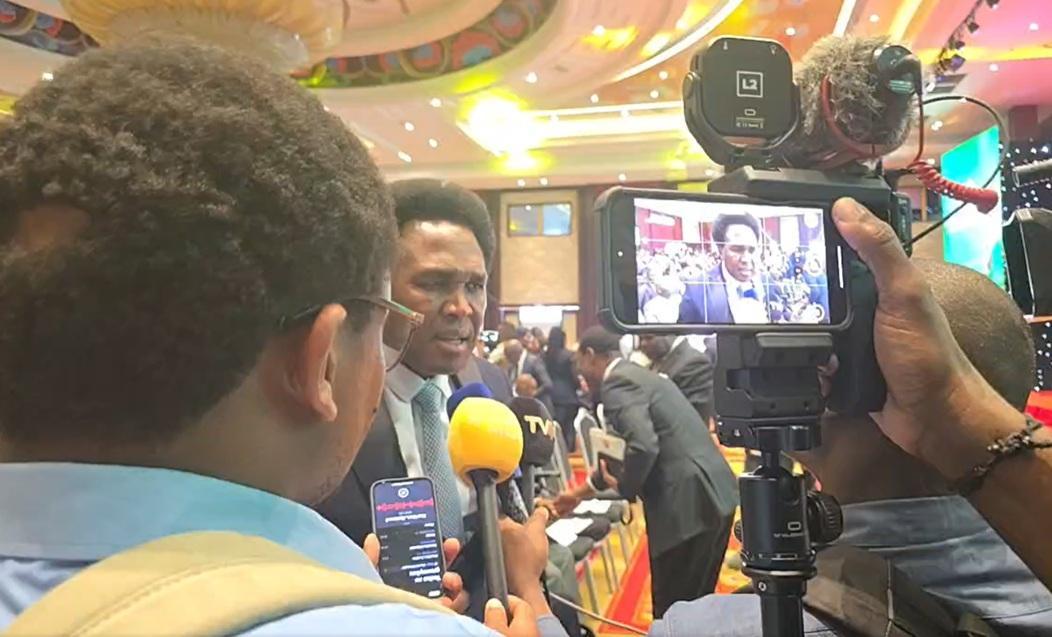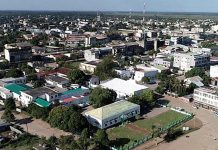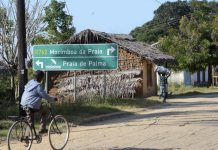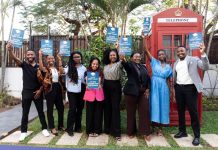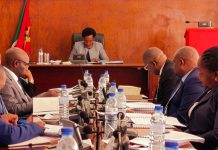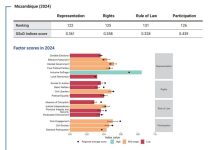Africa-Press – Mozambique. Anamola’s interim president, Venâncio Mondlane, clarified this Wednesday that the party wants to be part of the technical commission for the ongoing inclusive political dialogue in Mozambique, after head of state Daniel Chapo dismissed letters and requests to join the process.
“We still don’t have any responses [to the letter sent to the president] at this point. I was here as a member of the Council of State; I wasn’t invited as an integral part of the dialogue or the technical committee. We want to be part of the technical commission specifically because we have specific proposals for the technical committee,” said Venâncio Mondlane on the sidelines of the launch ceremony of the national and diaspora public consultation on the political dialogue for the pacification of Mozambique.
The Mozambican party National Alliance for a Free and Autonomous Mozambique (Anamola), founded by Venâncio Mondlane, sent a letter to the Mozambican head of state, Daniel Chapo, on August 25th, proposing its inclusion in the country’s ongoing political dialogue and requesting that the matter be discussed in parliament.
Yesterday, during his speech at the same ceremony, Daniel Chapo stated that no one needs to submit a request or a letter to participate in the dialogue, stating that it is “a listening space” where “no one is excluded”.
“In this process, every voice counts, every hand helps to build, and every dream has a place. Not a single Mozambican is excluded. No one needs to submit a request or a letter to participate in the Inclusive National Dialogue. We are all invited,” said the President of Mozambique.
In response, Venâncio Mondlane said that a letter is part of a normal process within the Mozambican constitutional framework, noting that the process is “very flawed” when it comes to inclusion.
“We did, in fact, make a request; there was much talk about requests and letters to be part of the dialogue. Making a request, writing a letter is part of a normal process within our constitutional framework, of those who, given the multiplicity of issues facing our state, want to integrate them, and we did so,” Mondlane declared.
The Mozambican politician said there were many challenges in the process of pacifying the country, beyond what he called the “merely formal aspect of the dialogue,” and pointed out “many issues that need to be resolved”, alluding to the detainees and victims of the post-election protests he led.
The interim president of Anamola called for “concrete actions” conducive to reconciliation, stating that dialogue cannot be discussed when the “country is bleeding” and “tears are streaming down the faces of many Mozambican families”.
“It’s not enough for us to simply say that this dialogue is for all Mozambicans. Even the road to hell is paved with good, convenient words. What we want are concrete actions, deeds that are conducive to reconciliation,” he concluded.
Mozambique yesterday began a national and diaspora public consultation on the political dialogue for the country’s pacification, which includes, among other matters, a new electoral model and a review of the Mozambican constitution.
In April, Daniel Chapo signed into law the Political Commitment for an Inclusive National Dialogue, approved days earlier in parliament, based on the agreement between the Mozambican president and political parties signed on March 5th. The agreement was signed to mitigate the violence and social unrest that followed the October 2024 general elections, which resulted in approximately 400 deaths, looting, and the destruction of businesses and public institutions.
The agreement to pacify Mozambique led to the creation of the Technical Commission for National Dialogue (COTE), which will, over two years, address the definition of republican and nonpartisan security forces, a new electoral model, the revision of the Constitution, reconciliation, national unity, and government decentralization.
Mozambique has experienced a climate of social unrest since the October 2024 elections, with demonstrations and strikes called by Mondlane, who rejects the election results that gave victory to Daniel Chapo, supported by the ruling Frelimo party, and sworn in as the country’s fifth president.
For More News And Analysis About Mozambique Follow Africa-Press

